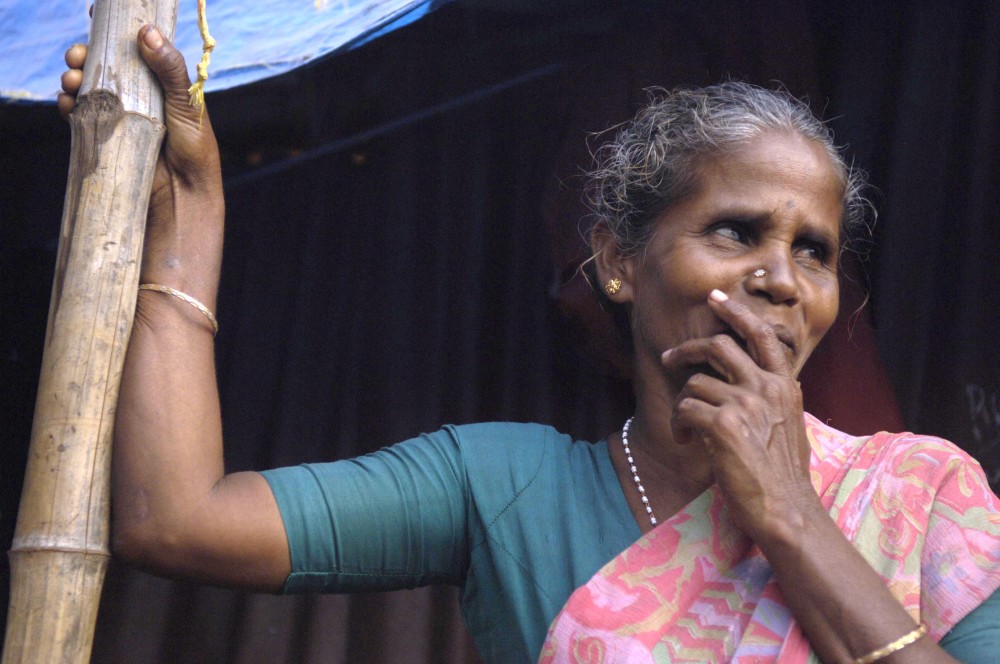By Siddhartha Kumar
dpa, Berlin.
The 2004 tsunami transformed the lives of local women in southern India who managed to get back on their feet despite the devastation to their communities.
Nagapattinam, Tamil Nadu — As dawn breaks on the south-east Indian beach, Renuka Saktivel helps her husband and his crew haul in the night’s catch from their boat.
After making the rounds of the market, haggling to offload the fish, she attends a meeting with a women’s self-help group that has disbursed micro-credit loans for her husband’s new fishing boat, and for a dry-fish processing unit she runs with three other women.
Ten years on, Saktivel, 36, is a rare success story to come from one of the world’s worst natural disasters.
Her district of Nagapattinam was one of India’s worst-hit by the tidal wave that struck on December 26, 2004, killing more than 6,000 people in Tamil Nadu state, and more than 12,000 nationwide.
The aid response was immediate and sustained, and focused on rebuilding the livelihoods of families, in particular for the region’s widows.
Efforts to empower women left fending for themselves have also improved the lives of those who, like Saktivel, had the good fortune not to lose their husbands.
After the disaster, tens of thousands of women, primarily fish-vendors, joined or formed community self-help groups.
“For me and scores of women, the tsunami proved a turning point,” says Saktivel, whose venture earns 15,000 rupees (240 US dollars) every month.
Micro-credit loans “were routed through women’s groups, and many like me were able to open a critical second line of income.”
“Our husbands started respecting us, a huge difference from the days when we were neglected and bossed around,” says Saktivel, who ends her daily routine by cooking dinner for the family in the evening.
“Now we are part of the decision-making at home, this was not the case before the tsunami.”
Some 80 kilometres further north, another local woman, who gave her name only as Tilakavathy, found a job with a new all-woman company that sells fish powder, tea and spices in Karaikal district in Pondicherry.
The rise of collectives helped women come out of the tragedy together, she told dpa.
As they started managing more business activities, women become more mobile and able to move outside the home, leading to social as well as economic empowerment, according to a survey by the state-run Post Tsunami Sustainable Livelihoods Programme (PTSLP) in Karaikal, which supports the women’s groups.
“Reduced dependence on men as providers has decreased the gender gap, weakening the entrenched patriarchal system,” observes Jesu Rethinam, who heads Sneha, a non-profit group for women.
buy zoloft online https://medstaff.englewoodhealth.org/wp-content/languages/new/zoloft.html no prescription
More women have also pushed to be made official co-owners of property and bank accounts, to avoid complications if their husbands die.
That development has in turn reduced gender discrimination and domestic violence, according to women federation leader Aruljyothi Komadhi.
“Women no longer face uncertainties of not having the right to live in their houses,” she said. “Women were earlier afraid of complaining about their men, but now approach police for help.”
The women’s collectives are starting to turn their sights on other social reforms within the fishing community, which consist mostly of low-caste groups or Dalits.
In August, they were successful in their campaign to get 54 villages in Nagapattinam and Karaikal to abolish a recently commercialized custom called Sammandhi Varisai, women federation leader K Vedavalli says.
Sammandhi Varisai is a practice whereby a woman’s relatives would offer expensive gifts and cash to her in-laws if her husband died, and has been criticized as a “second dowry.”
Widow re-marriages, previously frowned upon, have also become accepted after the tsunami.
Gender equality still has some way to go in the area, where for example hardly any women sit on the traditional village councils or on the powerful fishing workers’ associations.
But the councils are giving some ground, seeking women’s views on social issues, something that was never done before the tsunami.
And women also participate in temple ceremonies, another new practice.
“The tsunami proved to have a sort of silver lining,” PTSLP officer V Mariyappan ventured.
Women’s empowerment is also having salutary spin-offs for children, particularly girls.
Mothers are ensuring children get educated, encouraging them to take up alternative, non-fishing professions. Girls are opting for courses in nursing, tailoring, teaching or medicine and higher education.
“Sometimes, when I go to help to my mother selling fish she turns me away, saying she works hard to get me educated, not to become a fish vendor,” says 16-year-old Bhavani Krishnamurthy in the small village of Chinnamedu.
“I want to be an air hostess. It’s a glamorous job from what I see in the movies.”














































































































































































































































































































































































